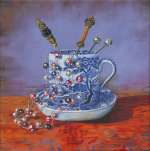Hello again!
Relationships have been very much on my mind over the last few weeks with quite a lot of reflection going on, so as there’s a varied crop of these ponderings, a random harvest post seems in order. From the relationships in my novel, to those between siblings in a psychology book I’ve been reading, to those between someone with dementia and their family members – a lot of thinking and feeling going on!
1. First up has to be the novel.

I wanted to be finished my first draft of After Black by the time I’m writing this post after my wee break, but I am, at least, very close now to the finishing line, even if I’ve been crawling along at the pace of a turtle. I do edit heavily as I go along for continuity and realism, so a first draft is a more polished affair for me (at least in my own mind) than for other kinds of writers whose natures dictate a different approach. But despite the slow pace, taking a break from blogging seems to have helped, not necessarily with freeing up writing time, but more just keeping a close focus on the novel by prioritising it in my heart and mind over other forms of writing. I’ve seen other bloggers having to do this, so I totally get it by having experienced it myself. A good lesson learned! However, the last chapter is coming up for me and this is where the evolving and changing relationships between my main character, Janet, and those people important to her have to work out right for her and right for me as the ‘director’ of the drama. They have to ring true for her and be feasible to me and the reader. And so what stalks in through the door? Our old friend, anxiety, to try to trip you up with self doubts. So you have to put on your writer’s armour and tackle these doubts and it becomes quite intense!
You’ve come so far, you’ve just got to get this right!
I know, I know!
Are you sure you’ve made this believable? Would Janet really change like this?
The whole point of the novel is Janet changing!
And isn’t her son just a bit too good to be true? Doesn’t he have a dark side?
She brought him up well!
Don’t forget, everyone has to have a story arc.
Not everyone, surely! There are a lot of characters here, that would be ridiculous. Give me a break!
Do you realise this is another novel about two women who don’t get on, like the first one?
Shocked silence
Oh my God, it is, isn’t it? Why didn’t I see that? Panic, Panic…but hang on, that is all there is in common. And there is so much else going on. Totally different themes, and it’s set in a different time. Just shut up! Anyway number 3 will be completely different…
And yet, there are some lovely moments too, when you happen to go back to check on something and you find yourself reading a passage from near the beginning, and you think:
You’ve written that really well
I love this!
You’re doing a good job
And that is how I hope I feel when I finish, that I’ve done a good job, and that Janet and her relations will be are happy, or at least content, with how things have turned out for them, because then it will be time to say goodbye and for us all to move on. And that brings me to another reason for a slow creeping up to the red ribbon finish – my whole current immersive writing fiction experience will have to change, and I have to be okay with waving farewell to my characters, because as soon as the editor me marches in upon the book after it’s had a rest, I will have a very different relationship with my ‘pals’. And I suppose this reminds me of a post I did on beginnings, middles, and endings, and how this structure encompasses so much of life experience outside of writing stories. So I‘m after a good ending for the novel and a good ending for me.
2. Relationships and their complex puzzles were central to a fascinating book I’ve just read, by psychologist, Dorothy Rowe: My Dearest Enemy, My Dangerous Friend: making and breaking sibling bonds.
 I’ve been interested in what’s behind sibling rivalry and relationships between siblings and their parents for years now, which really sparked off On Turtle Beach addressing the relationship between two fictional sisters. Reading Dorothy’s book gave me a useful sense of validation for the whole premise of my novel, and for that, I’m grateful.
I’ve been interested in what’s behind sibling rivalry and relationships between siblings and their parents for years now, which really sparked off On Turtle Beach addressing the relationship between two fictional sisters. Reading Dorothy’s book gave me a useful sense of validation for the whole premise of my novel, and for that, I’m grateful.
But of course, there was so much more, and My Dearest Enemy… is packed with real life examples of the family dynamics and repeating patterns of behaviour that can go on for the whole of our lives if we let them. Whether it’s from our former status as a child or our current role as a parent, there is so much to learn from this book. Dorothy addresses the destructive patterns of behaviour that lead to continuing conflict in adult life, as well as the supportive patterns that can be set up to last a lifetime – dear or dangerous, these patterns have their origins in early childhood and through parental influence. A few core points which stood out to me from the book are:
There are broadly speaking two ways to experience existence. Very often with siblings, there is one who derives their main identity and meaning from looking outward and establishing friendships and a social network. If they are deprived of their friends or of making friends they suffer. They are not their true selves and feel their identity threatened. You could view this as them being an extrovert sibling. Then there is the more introverted sibling, who looks inward, and seeks a sense of personal achievement, clarity and organisational control from which to derive their personal meaning and identity. If they don’t get these, chaos threatens. So for example, as a child, when I kept making sure the curtains were overlapping before I went to bed at night, I was seeking control, and when my sister trashed my tidy room while I was at school, she knew exactly what she was doing to upset me, as well as to even up ‘the score’ somehow! Needless to say fallings out easily occur when these varied ways of approaching survival come up against each other between siblings and between parent and child.
Another interesting take home point was the idea that every family has its own particular morality and style which children have to fit into and follow, you could say in order to keep the jigsaw that makes up the family intact. This style governs how everyone in that family behaves and thinks in relation to the external world. Those who follow the style are deemed to be good, those who go against the family style, like for example the proverbial black sheep who rebels or tells the truth as they see it, are judged as bad, and this can cause huge rifts and frictions which can last a lifetime. From the child’s point of view, the specific family style might not be appropriate to the life that child wants to live or may not fit that child’s ability. So in each family some children are better than others at meeting the family’s requirements, and probably become highly aware of that when they are adults. Dorothy also points out that the family style may be a façade to show outsiders and that the reality can be very different behind the mask.
Other themes of interest are:
Siblings may have very different versions and views of family events or their relationships based upon how they as an individual remembered the impact these had upon them.
Siblings frequently compete to be the ‘good’ one and so power struggles very naturally ensue.
Powerful family dynamics can go on featuring both loyalty and betrayal.
3. And loyalty and betrayal brings me to how family members may deal with a loved one having dementia. This thinking comes from my experience as a befriending volunteer to someone with dementia, as well as a dementia training day I went on this week. The point of the training was to understand how dementia affects the brain and the varying ability to remember long term versus short term events/happenings and how time is compressed, with the past remembered most vividly of all. But primarily it was about how to ease distress and bring about a contentment within someone living with dementia, based on the theories set out in a new book by Oliver James, entitled Contented Dementia. Here is an extract from an article James wrote for The Guardian:
Because they do not store new information, they often have no idea who they are talking to or where they are – imagine how scary that must be and how aggressive you might become when your version of what is happening is challenged. Luckily, their long-term memory is working fine and completely logically. Faced with no clues about what is going on, they search their memory for comparable circumstances – if those around them will allow it.
And so the basic approaches are:
Don’t contradict someone with dementia, because it will challenge and potentially betray what their only truth is, as far as they are remembering it, otherwise you will cause distress, even trauma eg ‘No, your mother’s dead, Ann. She died 20 years ago now’ is telling the truth, which is our first impulse, but it’s a contradiction which will cause distress and it’s this contradicting the reality of the person with dementia which can cause aggressive behaviour to ensue (so this approach makes total sense!)
Don’t ask them lots of questions as it confuses them and puts the onus on them to respond or make a decision which they can find stressful in the present moment. In their present they can be frequently anxious due to trying to understand what is happening and to stay in control, so being asked questions incurs more tension. Try finding out what you want to know a different way…
…By entering their world and chatting about that with empathic curiosity. You’re interested in them and you can look for aspects from your own life to share. You can find out so much more about someone this way and develop a deeper relationship. You can say ‘Let’s go and have a cup of tea’ as an inclusive phrase with no decision for them to make, rather than ‘Would you like a cup of tea?’
Now on the course there were two gentleman who were loyal carers for their wives and were doing so much the contented right way, with respect and humour and much love, even though it was challenging for them and painful at times. Their long term relationships would have been loving and long with an equal balance of power between them I suspect. But the tutor pointed out that some people with dementia, still living at home, can be manipulated by relatives or their spouse more easily in power struggles because of their loss of memory, and from my recent volunteering experience, I’d say yes, this certainly does happen. Just think of those long term complex family dynamics going on, then one person gets dementia…what happens then? So manipulating a family member with dementia by messing about with their memory, telling them things that aren’t true or vice versa, is a form of betrayal. It may be betrayal to protect oneself, to fend off outside intervention or ‘interference’ as they may see it, to keep one’s life the way it’s always been at any cost, but it is betrayal, and I do wonder how much of it goes on. Word of warning duly given…
And of course for writers all these family relationship conflicts are great themes for stories, which is a useful way of maintaining one’s own boundaries with objectivity, when you feel as if you’re being sucked in. Get your perspective sorted, quick! In my view, this trait of objectivity is a definite bonus for writers.
4.Moving on to craft now (well, why not? ;>)), where I suspect many introverts go to express themselves or create meaning, and to get us in the mood for the sparkle of Christmas, here is an embellished wooden painted heart I did recently, buttons, beads and bits of old jewellery as well as glass pebbles – a random harvest indeed!

(First two pics courtesy of pixabay)
















Loved the brooch and glad you’re back safely.
LikeLiked by 1 person
Your random musings offer such a variety of topics, and each one is explored in depth. Any one of these could have been an entire post, but stringing them together (in a craftsy sort of way) adds to the value of each one. They are like a charm bracelet.
I am most fascinated by the segment on siblings, and indeed I found that a fascinating focus of your book. Having one sibling (an older sister), I find many of your observations to be true in my own life. Off and on over the years, I have craved a closer relationship, but I accept again the reality that the different personalities we have in some ways do not mesh very well. We care about each other, no doubt, but that my-sister-is-my-best-friend sort of relationship is not in the cards for us. It sometimes makes me feel sad.
And now as a parent, I’m watching it play out with my kids, complicated by the mix of a foster daughter with my two daughters, and all the issues that that raises. I see how I set certain dynamics in place that they, as adults, are changing to suit themselves now. This is causing some hurt feelings, but it seems a necessary transition to how they are going to relate to each other as adults.
Families! Dangerous and dear indeed.
LikeLiked by 2 people
Thanks so much, Galen! Sometimes I have no idea how I am going to string them together, but I like to try. The mind bending is probably good for me, and that is something I really appreciate about your posts. That’s a compliment by the way :>)
It means so much that my book resonates with you and of course I used some of my own experiences. I can relate to wanting a closer relationship with my sister (younger), the same craving going on at intervals here for me too, but over time I’ve had to accept it for what it actually is, just like you’ve had to – but I too find it sad.
Yes, thinking and aware parents are bound to observe these family dynamics going on and try to aid wellbeing for all concerned, but what a challenge! My mother, I realise, especially after reading Dorothy’s book, did a very good job – she always kept me and sis equal and there is plenty of respect going on, no nasty rows and my sister and I do cooperate well. I’m sure you’ve done a great job too, and as you say these uncomfortable transitions need to happen – my sis and I have had one or two and my mother was helpless! (funny though in retrospect) Cheers, Galen.
LikeLike
Oooo! I love that heart!
LikeLiked by 1 person
Really easy to do, but the metal backs of brooches and earrings needed my hubby’s assistance to remove. Apart from that, a doddle!
LikeLiked by 1 person
My dad’s dementia is worsening. Thank you for the book recommendation. And I love the heart! Great use of little tucked away baubles that hold meaning!
LikeLiked by 1 person
Hi Kelly, sorry to hear about your dad. I hope you find the book helpful if you decide to give it a try. The tutor and a couple of the people in the training day were very familiar with, and keen about, the ideas, and had been putting them into practice with good results, but there is some controversy too which might be worth exploring. Glad you love the heart and yes, great for ‘tucked away baubles with meaning’!
LikeLiked by 1 person
thanks so much for a very thoughtful post. much to ponder. i love the beautiful beaded heart you created. re introverts and extroverts: some, like me, are born extroverts but have been conditioned by their circumstances into introversion 😦
LikeLiked by 1 person
Thank you, Libby…I’d never considered what you are saying before – about someone being moulded into a different kind of behaviour as you describe, but having read the Rowe book, I can begin to understand how that might have happened. I know I used to feel that I should be more extrovert and that came from social conditioning I suppose, but within the family I was the introvert sister compared to my extravert sister and I think she struggled as a teenager because our parents were more introverted and they found it harder to understand her needing to socialise so much. I have come to embrace my true nature now (including some extraversion!) and hope you’ve been able to as well. Thank you for sharing, Libby
LikeLike